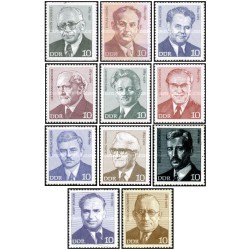- جدید
- ناموجود



توجه : درج کد پستی و شماره تلفن همراه و ثابت جهت ارسال مرسوله الزامیست .
توجه:حداقل ارزش بسته سفارش شده بدون هزینه پستی می بایست 100000 ریال باشد .
توجه : جهت برخورداری از مزایای در نظر گرفته شده برای مشتریان لطفا ثبت نام نمائید.
| 罗荣桓 | |
|---|---|
 |
|
| Secretary of the Commission for Discipline Inspection of the Central Military Commission | |
| In office 1961–1963 |
|
| Preceded by | Post established |
| Succeeded by | Tan Zheng |
| In office 17 September 1955 – 1956 |
|
| Preceded by | Tan Zheng |
| Succeeded by | Xiao Hua |
| Procurator-General of the Supreme People's Procuratorate | |
| In office 1949–1954 |
|
| Preceded by | Post established |
| Succeeded by | Zhang Dingcheng |
| Personal details | |
| Born | 26 November 1902 Hengshan County, Hunan Province |
| Died | 16 December 1963 (aged 61) |
| Awards | |
| Military service | |
| Allegiance | |
| Service/branch | |
| Years of service | 1927-1963 |
| Rank | Marshal of People's Republic of China |
| Commands | Political Commissar of the Northeast Field Army |
| Battles/wars | Northern Expedition,Long March,Hundred Regiments Offensive,Chinese Civil War |
Luo Ronghuan (simplified Chinese: 罗荣桓; traditional Chinese: 羅榮桓; pinyin: Luó Rónghuán; Wade–Giles: Lo Jung-huan; November 26, 1902 – December 16, 1963) was a Chinese communist military leader. He served as a Vice Chair of the Standing Committee of the National People's Congress
Luo was born in a village in Hengshan County, Hunan Province. In 1919, at the age of 17, he enrolled in Xiejun Middle School in Changsha. Five years later, he began attending Shandong University (then Qingdao Private College), completing a preparatory course in Industry in Commerce in 1926. He joined the Chinese Communist Youth League in April 1927 and the Chinese Communist Party later that year. During the Long March he served as the security chief for the Chinese Red Army.
After World War II, Luo served as the political commissar of Lin Biao in Northeast China during the Chinese civil war. Unbeknownst to outsiders, Luo's contribution to the communist victory in the northeast and hence to a great degree, elsewhere in mainland China was far greater than what was previously publicized, and in fact, greater than that of Lin Biao. The reason is that people often overlooked Luo's political contribution by concentrating on Lin Biao's military victories. However, Lin Biao, or any other communist commanders would never be able to achieve any military victory if there is not any strong and stable political support from the troops and the general populace. This is where Luo's importance proved to be critical: Luo's skillful political work ensured the troops' loyalty and popular support of the communists.
After the end of World War II, the communists demilitarized more than a million of its troops. However, the communist demilitarization was far from the peaceful demilitarization of the nationalist counterparts, and in fact, the communist demilitarization was part of Mao Zedong's class struggle in which most of these demilitarized troops and cadres were persecuted. The reason of persecution of the troops and cadres within their own rank was simple: despite their dedication to communism, those troops and cadres were from well to do family backgrounds. As a result, the communists were not only in danger losing the popular support, but also face alienation and defection within its own ranks. Luo was instrumental in stopping the widespread persecution and thus saved the communists in Northeast China from losing the popular support, as well as supports within its own ranks, thus strengthened the communists, ensured Lin Biao's later military victories, and Luo did all of these against Mao's wishes. It was not after witnessing Luo's success did Mao started to praise Luo's effort.
As a result of Luo's success, the defection and desertion among communists in Liaodong, Jilin, and Heilongjiang only numbered around 60,000, while in other communist controlled region such as in Shandong alone, the defection and desertion numbered more than 300,000 according to Mao's own admission, and the communist force in Shandong was much smaller than that of those three Northeastern provinces. Luo's bravery of rejecting persecution of Mao's class struggle ideology had saved Chinese communists in the northeast from certain failure.
After the formation of the People's Republic of China in 1949 he became Chief of Staff of the People's Liberation Army. He was made a marshal in 1955.
Luo was the member of the 7th CPC Central Committee and 8th CPC Politburo. When Luo died in 1963, both Mao and Lin Biao attended his funeral; his funeral was one of the only two funerals Marshal Lin Biao attended, the other being the funeral of his former chief of staff and commander-in-chief of the PLA air force General Liu Yalou.
تشکر نظر شما نمی تواند ارسال شود
گزارش کردن نظر
گزارش ارسال شد
گزارش شما نمی تواند ارسال شود
بررسی خود را بنویسید
نظر ارسال شد
نظر شما نمی تواند ارسال شود

check_circle
check_circle















